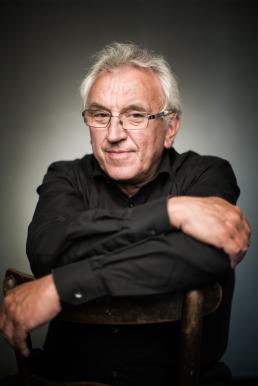Martin Sieghart
Conductor

© Robert Maybach
Martin Sieghart
In 1985, Sieghart left the Vienna Symphony Orchestra to pursue a career as a freelance conductor. His breakthrough came in 1990 when he was invited at short notice to step in for a concert with the renowned Stuttgart Chamber Orchestra. The success of this performance led to further engagements, and shortly thereafter, the orchestra appointed him as the successor to its founder and long-serving chief conductor, Karl Münchinger. Around the same time, Sieghart conducted Mahler’s First Symphony with the Bruckner Orchestra Linz, which was also searching for a new chief conductor. This performance resulted in his appointment as opera director and chief conductor of the orchestra. In 2003, following a long-standing collaboration with the Gelders Orkest in Arnhem, the Netherlands, he was named the ensemble’s artistic director.
As a guest conductor, Sieghart has worked with leading orchestras worldwide, including the Philharmonia Orchestra London, NHK Symphony Orchestra Tokyo, Rotterdam Philharmonic, Tchaikovsky Symphony Orchestra Moscow, and the radio symphony orchestras of Berlin, Stuttgart, Cologne, and Hanover. He has also conducted the Museum Orchestra Frankfurt and the Residentie Orkest The Hague. In Austria, he has led the Vienna Symphony Orchestra, the ORF Radio Symphony Orchestra, the Mozarteum Orchestra Salzburg, the Tonkünstler Orchestra of Lower Austria, the Vienna Chamber Orchestra, and the Wiener Concertverein. His international engagements have taken him to symphony orchestras in Malaysia, Macao, São Paulo, Santiago de Chile, and Japan, including the Tokyo Symphony, Japan Philharmonic, and Japan Century Orchestra, as well as the Gran Canaria Philharmonic, Orchestra della Toscana, Orchestra Sinfonica Siciliana, and the philharmonic orchestras of Ljubljana, Zagreb, and Belgrade.
A particular passion of Sieghart’s is the music of the Strauss family. For four years, he conducted the Johann Strauss Orchestra on its New Year’s tours in Japan. He also dedicated concert programs to the Strauss composers with the Vienna Symphony Orchestra, the Philharmonia Orchestra London, and his own orchestra in Arnhem. At the Leipzig Opera, he conducted a new production of Die Fledermaus. After concluding his positions in Stuttgart and Linz, he broadened his artistic activities and was appointed professor at the University of Music and Performing Arts in Graz.
In addition to his conducting career, Sieghart has been involved in numerous special projects. In 2003, he became chief conductor of the Arnhem Philharmonic Orchestra and founded the open-air festival Mozart in Reinsberg, dedicated to Mozart’s operatic works. He also led the international chamber orchestra Spirit of Europe, an ensemble comprising musicians from over ten nations. In 2012, he co-founded the festival EntArteOpera with Susanne Thomasberger and Philipp Harnoncourt, aiming to revive the works of composers labeled as "degenerate" during the Third Reich. As part of this initiative, the Israel Chamber Orchestra was invited to perform, with Sieghart serving as its principal guest conductor.
In 2016, he concluded his tenure as a professor in Graz and has since worked as a freelance conductor and educator worldwide. His background in Vienna includes studies in conducting, cello, piano, and organ. As principal cellist of the Vienna Symphony Orchestra, he gained invaluable musical experience that later shaped his conducting career. He was also deeply engaged in church music and served as Regens Chori at Vienna’s renowned University Church. As a chamber musician, he performed with the Wiener Instrumentalsolisten, the Eurasia Quartet, and Concentus Musicus under Nikolaus Harnoncourt. In 1985, he transitioned from cellist to assistant conductor of Gennady Rozhdestvensky. His guest performance with the Stuttgart Chamber Orchestra led to his appointment as chief conductor, succeeding Karl Münchinger. In 1992, he also took on the role of chief conductor at the Bruckner Orchestra Linz and the Linz Opera, recording numerous CDs with both ensembles.
